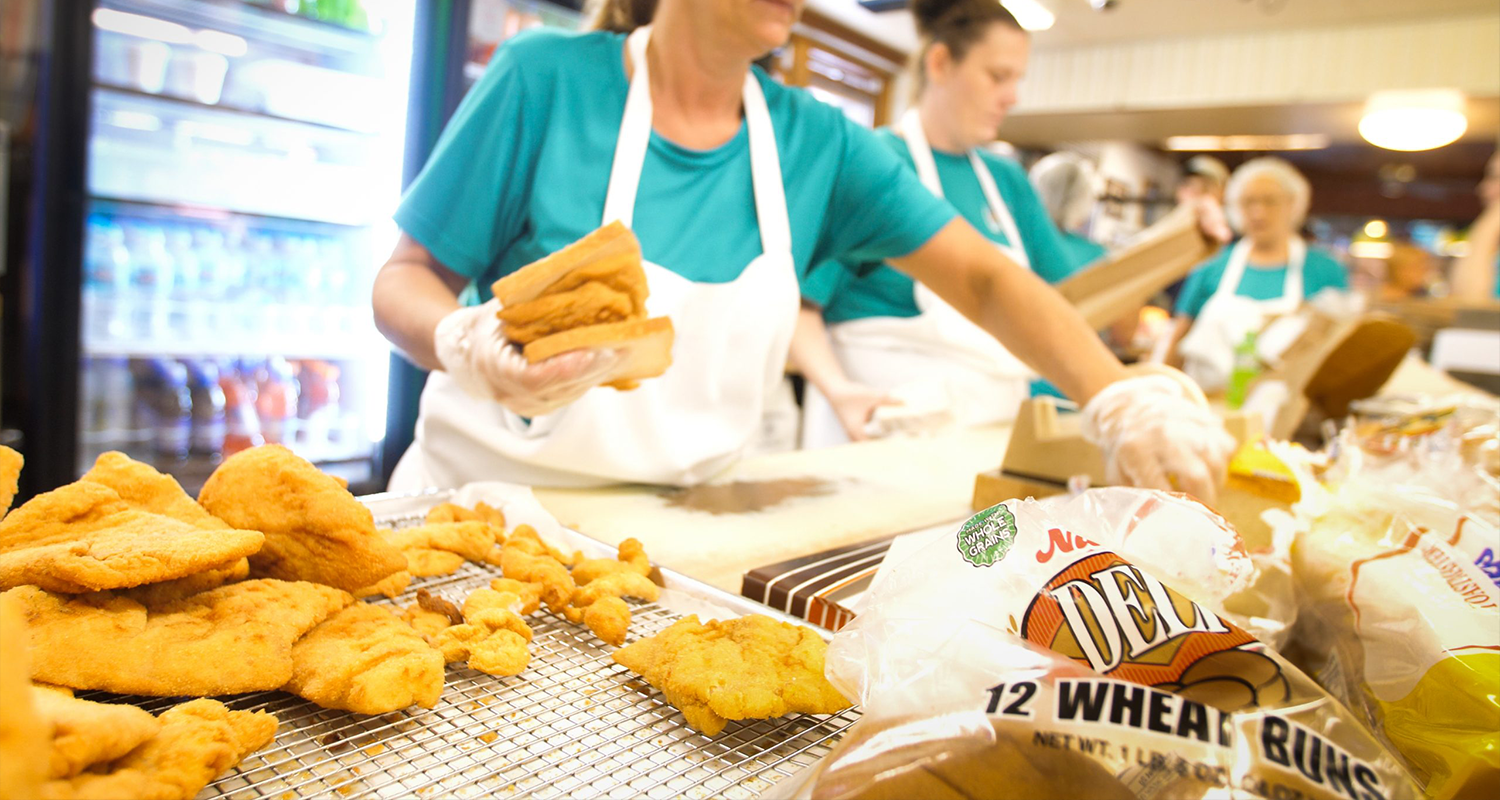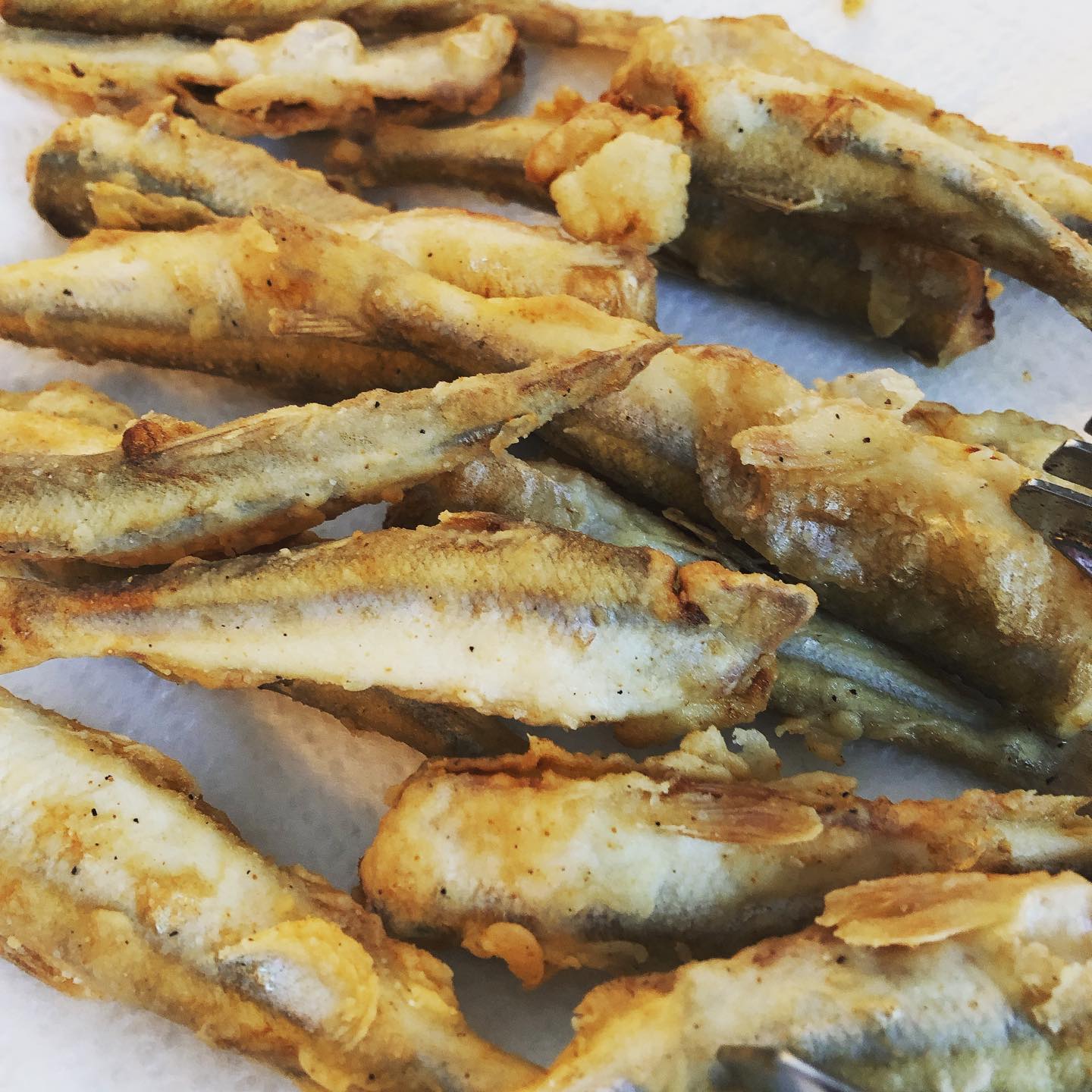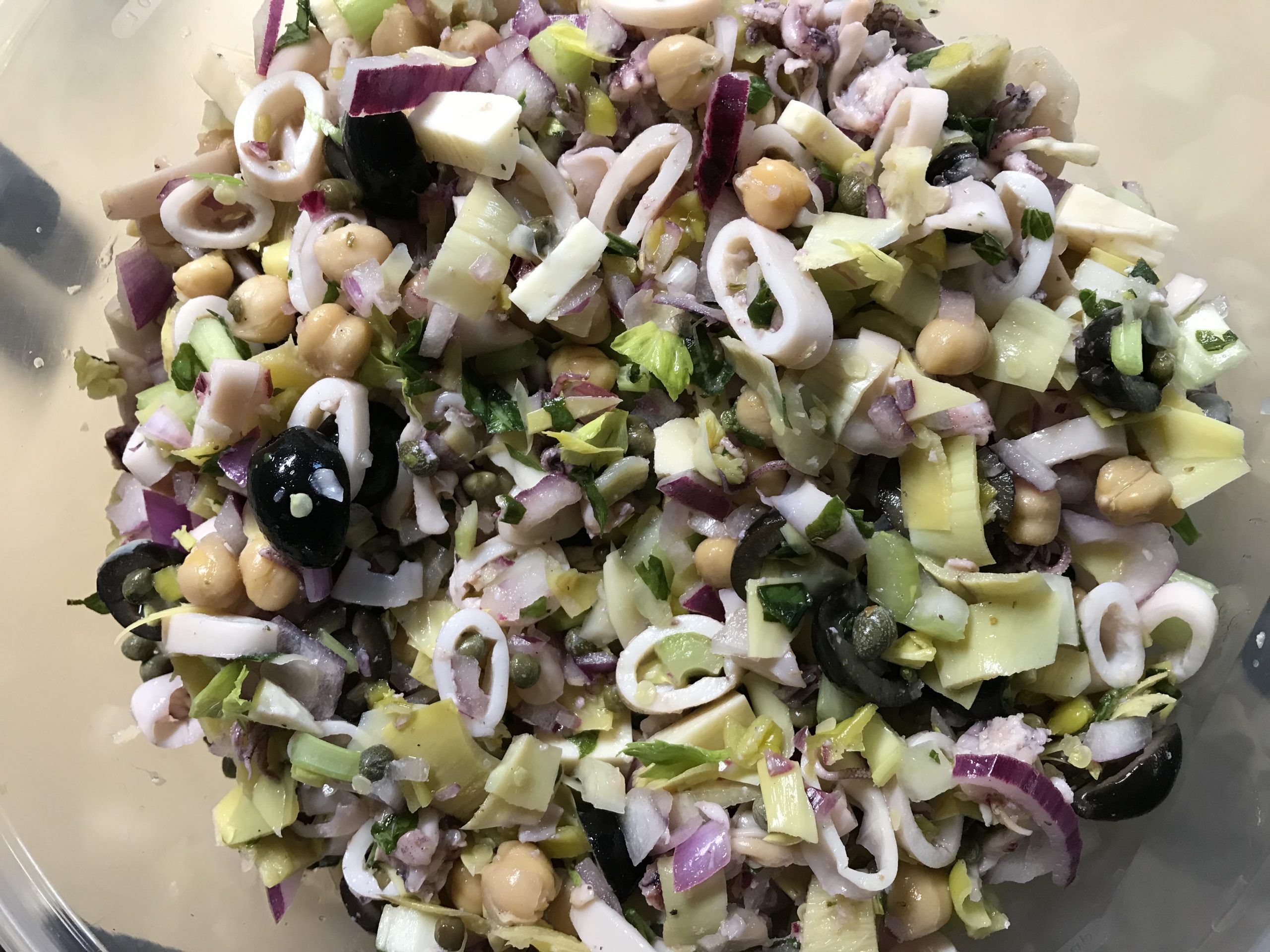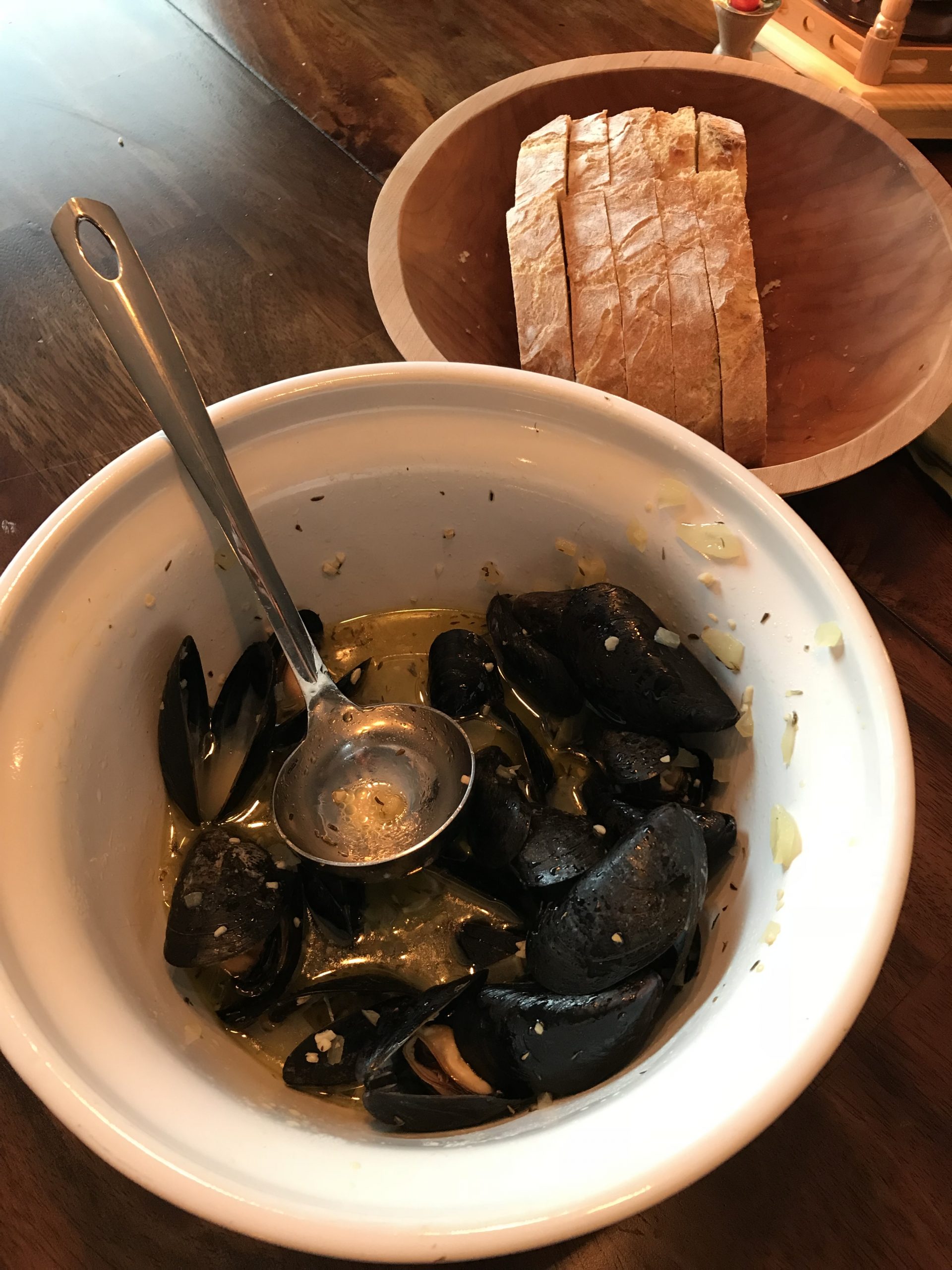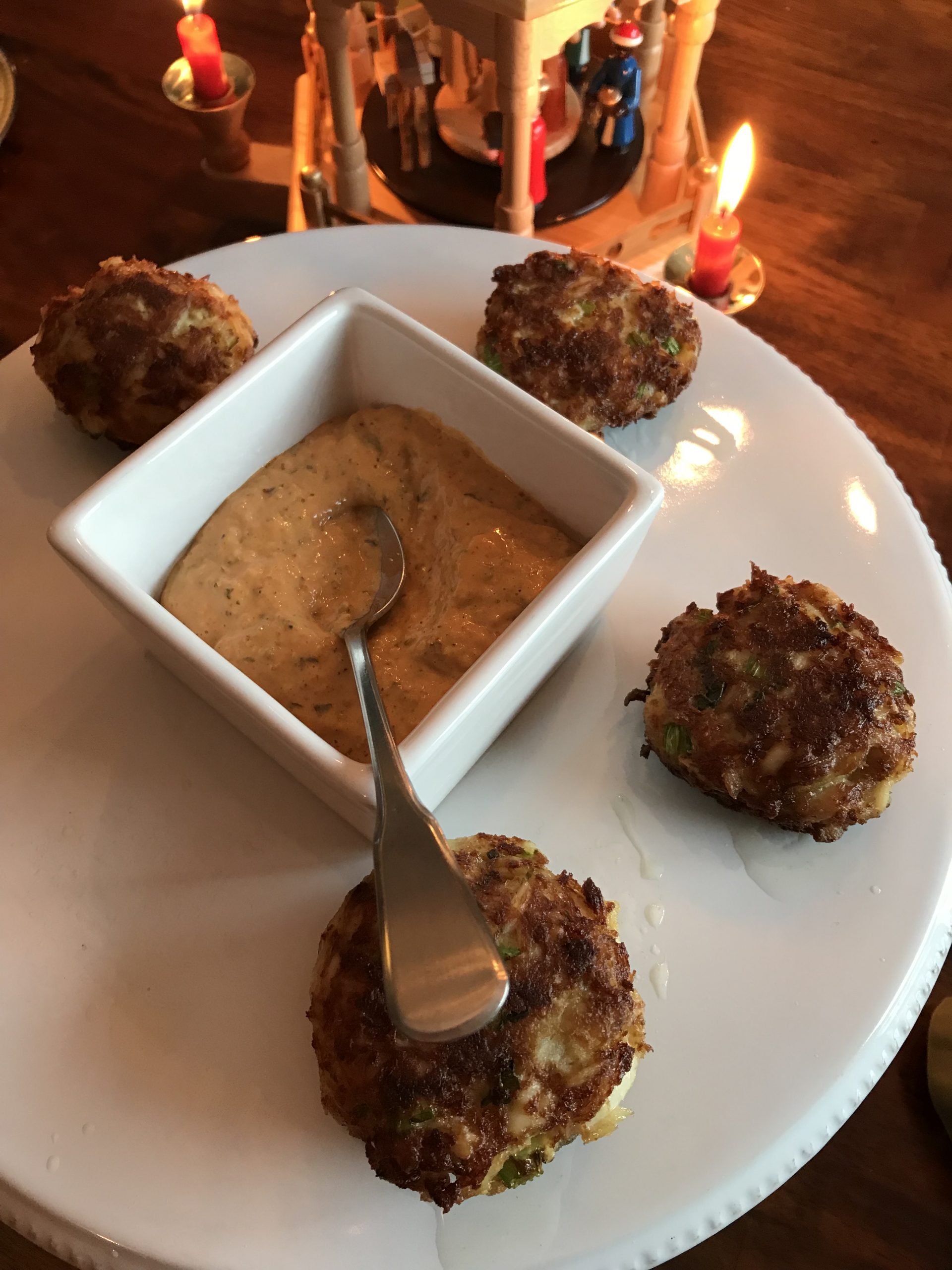This time of the year is usually one of celebration, good will, spending time with family and friends, and shopping. But, few places get as busy as Coleman’s Fish Market in Centre Market, Wheeling.
At first glance, fish and seafood may not seem as intuitive for the holiday season as a Christmas tree, candles for a Hanukkah menorah, or a Kwanzaa kinara. However, December is one of the busiest times of the year for Coleman’s Fish Market, partially due to an Italian-American tradition—the Feast of the Seven Fishes.
Confusing History of the Feast of the Seven Fishes
The Feast of the Seven Fishes is a meal usually served on Christmas Eve by some Italian-American families. Not all Italian-Americans celebrate the Feast; it is generally considered to have originated with immigrants from southern Italian regions where seafood is an important foodway and part of the culture. Those that observe the holiday often have a variety of different ways of celebrating. There is no agreed-upon list of which seven fishes to serve—some families even create seven dishes out of the same type of fish.
In fact, there is little that is certain about the Feast. Although it is known for having distinctly Italian roots, it is not celebrated in Italy. While there is no verified origin story, chef Stacy Adimando—executive editor at Saveur magazine—believes that the Feast of the Seven Fishes probably started out as an Italian-American version of the Roman Catholic tradition called la vigilia, “The Vigil,” which represents the waiting for the baby Jesus Christ to be born.1 Traditionally, there would be a sparser dinner on Christmas Eve before a larger Christmas Day meal. For some, this meant going without meat, hence the focus on fish.
Why seven?
Yet another unconfirmed mystery of the Feast. There is some speculation that seven was chosen because the number holds significance in the Catholic Church, such as the Seven Sacraments, the seven days of creation, or the seven deadly sins. However, there is no evidence that the number actually has religious roots, and many do not stay faithful to the number of dishes.2
The Feast of the Seven Fishes and Wheeling
Wheeling resident Tonie Picchi-Sivert has fond memories of greatly enjoying her family’s Feast of the Seven Fishes when she was growing up. They would have “all kinds of fish and we would even have spaghetti with clam sauce.” Coleman’s Fish Market was an important part of Tonie’s family tradition. The holiday was from her father’s Italian side of the family and she remembers how “my dad would buy smelt from Coleman’s market every year and that was what our fish would be.” Tonie and her family stopped celebrating the Feast when her father passed away, but she still goes to Coleman’s for other holiday needs—especially shrimp. She calls it “one of the best places I’ve been for fish around the Valley.”
The uniquely Italian-American Feast became a way for immigrants and their descendants to stay connected to their culture and foodways while building a new community in the United States. West Virginia and the Northern Panhandle have a rich history and culture of Italian immigrants and their descendants. Many of the Italian immigrants to Wheeling were from southern regions of Italy, especially Sicily, hence the connections to the Feast of the Seven Fishes.3 They were drawn to the Wheeling area by the increasing job opportunities in the mines and steel plants in the early 20th century. The most popular neighborhoods for Italian immigrants and their families were Warwood, East Wheeling, and Elm Grove, which still retain significant Italian influences today.4
While most Wheeling residents who observe the holiday celebrate privately with their family and friends, other places in West Virginia make it more of a community event. In Fairmont, WV, there is an annual Feast of the Seven Fishes Festival every December designed to “preserve Italian-American customs and foodways” and draws thousands of visitors for a day “filled with authentic Italian seafood cuisine, wonderful—and free—performances of traditional holiday music, and unique gift-shopping opportunities at an open-air street market.”5
Coleman’s and the Holiday Season
A lot of Coleman’s business during the holiday season is people buying fish or seafood for the Feast of the Seven Fishes—popular items include baccalà (salted cod), squid, and shrimp. The Market was opened in 1914 by John Coleman—today, it’s run by his grandson, Joe Coleman. Coleman’s employee Michelle Darling describes that during a usual year, “people are lined up around the corner, wall to wall, complete chaos.” To give an idea of the craziness: Coleman’s sells about 5,000 pounds of shrimp alone during the holiday season. The increased business starts at the beginning of December and lasts throughout the holiday season.
Despite the massive holiday traffic for fish, the local flavor can be felt before even purchasing. Coleman’s gets a lot of the same patrons who return every year for their Seven Fishes or other holiday needs. About half of the orders during December are pre-orders (as opposed to walk-ins and/or hot meals) from holiday order sheets that Coleman’s distributes. However, unlike larger grocery store corporations, the market saves orders from the previous year to get an idea of what to expect from each returning customer.
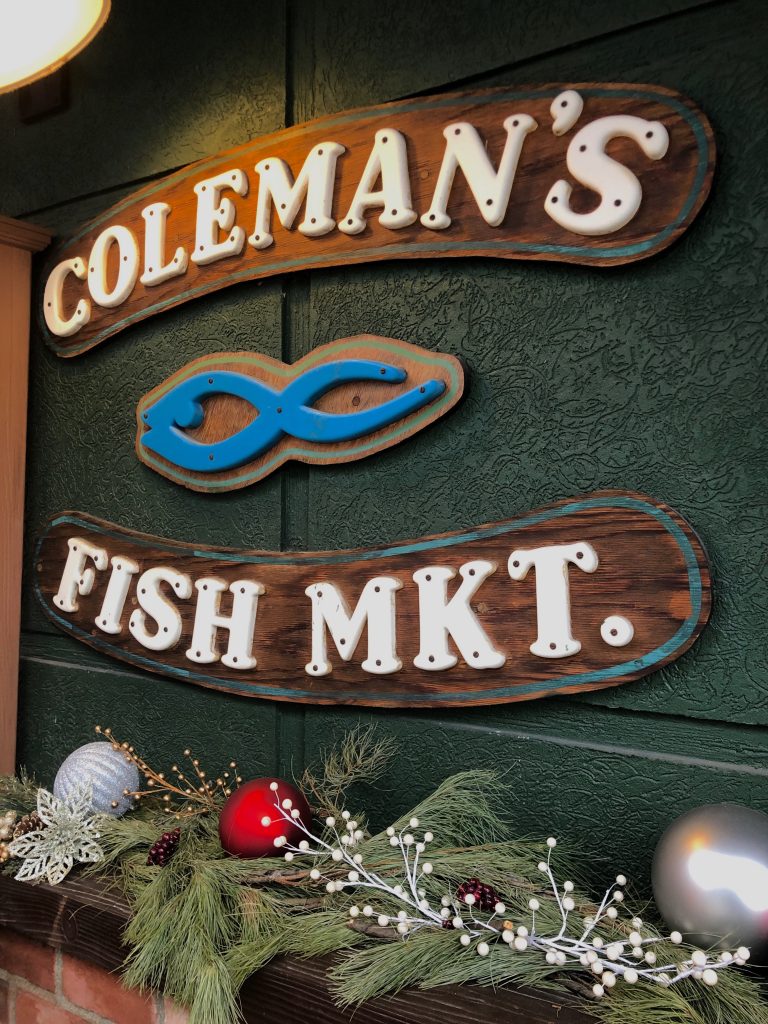
However, not all the holiday traffic at Coleman’s can be attributed to the Feast of the Seven Fishes. Wheeling area residents who do not celebrate the Italian-American Christmas Eve Feast still flock to Coleman’s to get supplies for other holiday dishes and traditions. Bonnie Treiber stands in line every Christmas Eve morning for 30 minutes to an hour to buy breaded pollack for her famous “Fish on the Porch” tradition. Why “Fish on the Porch?” Bonnie cooks the fish on an electric skillet on the porch so her house doesn’t smell like fish!
On a normal year, Bonnie loves “standing in the crowds at Coleman’s as you meet so many nice people from all over the area and they all have a story to tell about their visits to Coleman’s. Great way to start Christmas Eve morning—everyone is so friendly and happy to be there!”
Adjustments this Holiday Season
This isn’t the first time Coleman’s Fish Market has gone through a pandemic. In 1918, only a few years after its opening, the 1918 Spanish Influenza pandemic impacted the Market. However, Joe Coleman regretfully admits that his grandfather didn’t leave him any notes or directions on lessons learned.
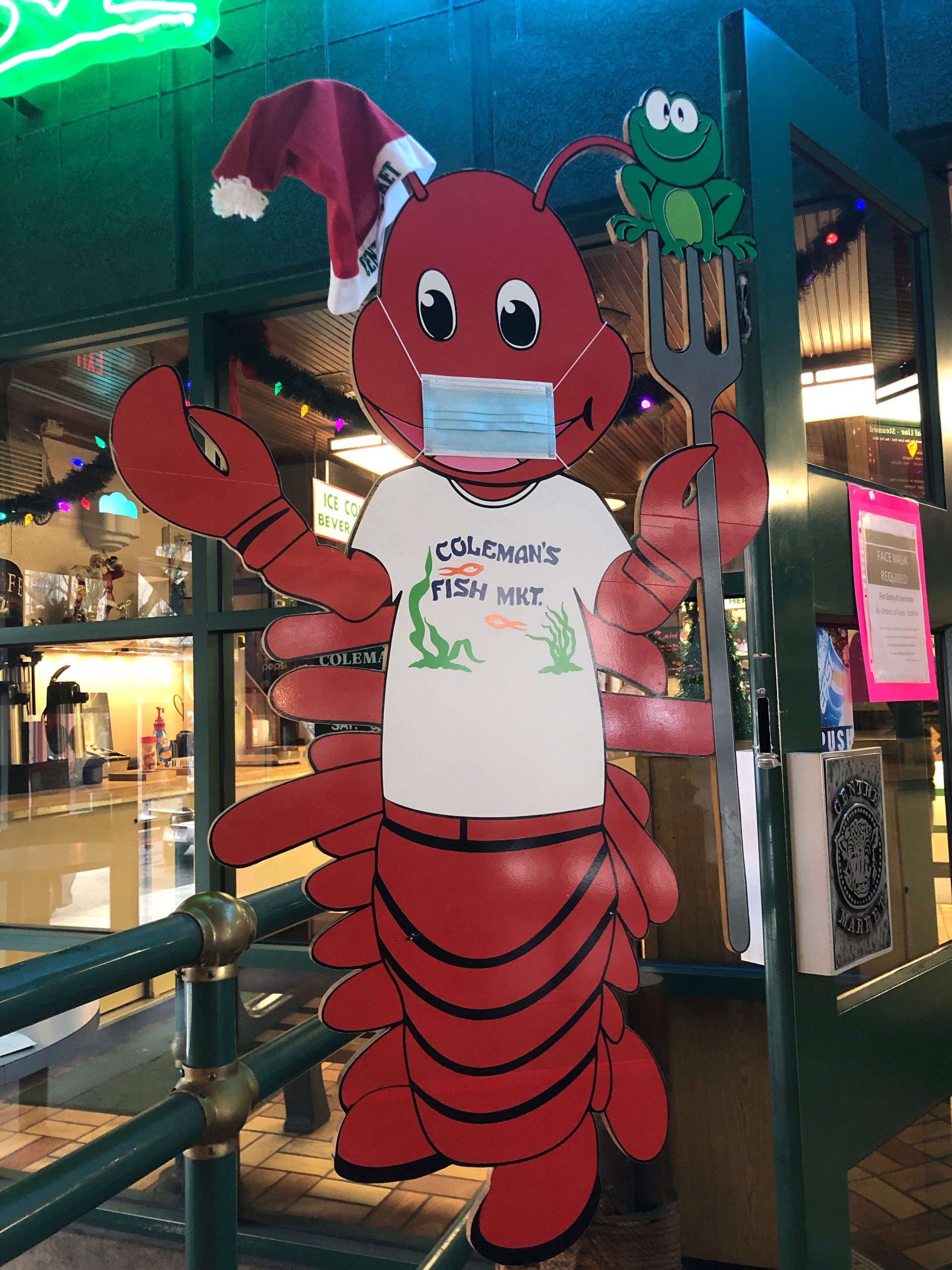
Coleman’s Market has plans on how to handle the expected influx of December shoppers looking to maintain a semblance of their holiday seafood traditions. They are setting up an extra express pick-up location in the upper Market House seating area to spread out the foot traffic and allow for social distancing—their refrigerator truck will be parked on the street for easy access to pre-orders. Joe Coleman predicts that this opens up opportunities for the future post-pandemic—maybe some of the streamlined holiday changes will stick long term!
On a normal year, the Feast of the Seven Fishes is different for each family that celebrates a variation of the tradition. This year, even more adjustment is demanded due to the pandemic. It is traditions like annual shopping at favorite local stores and markets for holiday staples that allows the community to generate shared holiday spirit, even if we must celebrate apart!
• Emma Wiley, originally from Falls Church, Virginia, was a former AmeriCorps member with Wheeling Heritage. Emma has a B.A. in history from Vassar College and is passionate about connecting communities, history, and social justice.
References
1 Stacy Adimando, Interview with David Greene, “‘Saveur’ Magazine Examines How The Feast Of The 7 Fishes Started,” Morning Edition, NPR, December 18, 2018, accessed December 1, 2020, https://www.npr.org/2018/12/18/677691976/saveur-magazine-examines-how-the-feast-of-the-7-fishes-started
2 “The Origin of the Feast of Seven Fishes,” Eataly, accessed December 1, 2020, https://www.eataly.com/us_en/magazine/culture/origin-feast-seven-fishes/
3 “Did You Know About West Virginia’s Deep Italian Heritage?,” West Virginia Tourism Office, July 31, 2020, accessed December 11, 2020, https://wvtourism.com/did-you-know-about-west-virginias-deep-italian-heritage/.
4 Sean Duffy and Jim Thornton, The Wheeling Family: A Celebration of Immigrants and Their Neighborhoods, (Wheeling: Creative Impressions, 2008): 53.
5 Shannon Colaianni Tinnell, “Feast of the Seven Fishes,” West Virginia Department of Arts, Culture and History, accessed December 8, 2020, http://www.wvculture.org/goldenseal/winter11/Feast.html.


